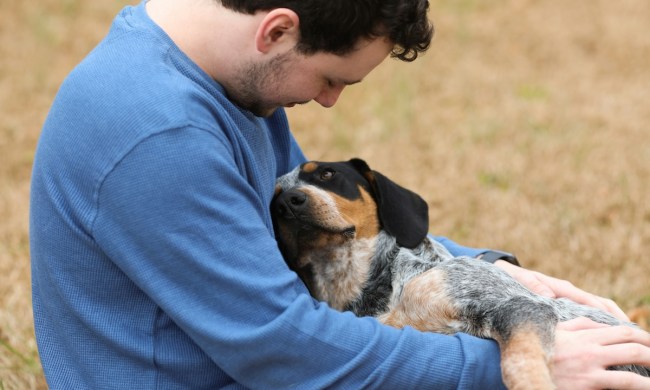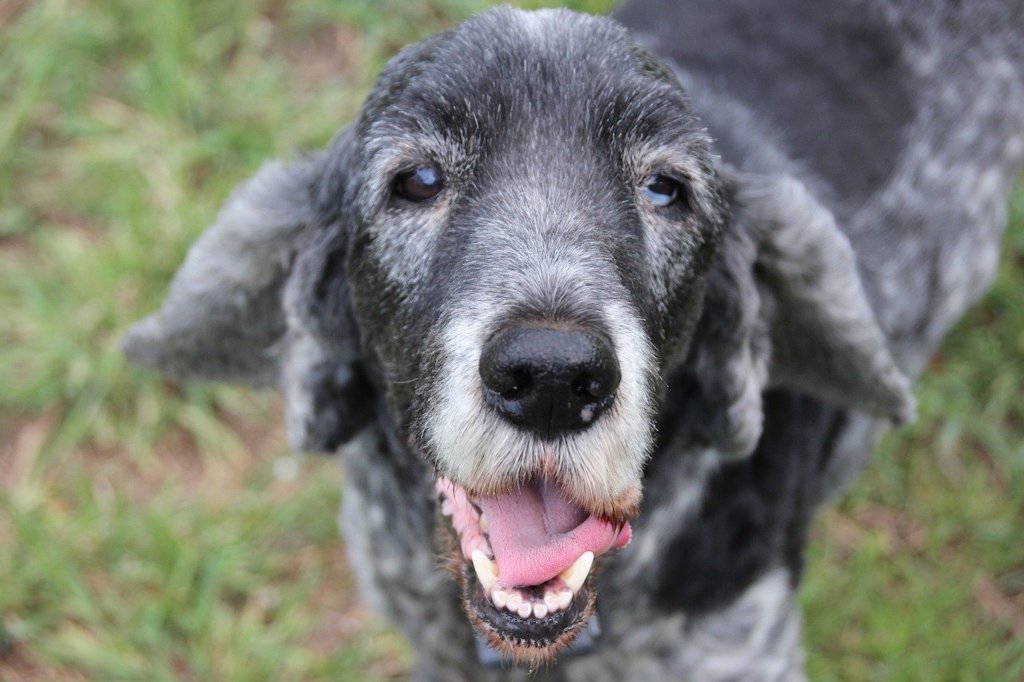
Some of the smallest breeds of canines — Chihuahuas in particular — are known for their tendency to tremble, but it can be a bit startling when your old dog starts shaking suddenly. Especially if they’re a larger breed or have no history of tremors, you might find yourself taking to Google: “Why is my old dog shaking?”
- Are weakening muscles the cause of your old dog shaking?
- Arthritis or joint pain – common reasons for tremors in senior dogs
- Shaker syndrome is a startling yet harmless (and self-explanatory) cause of old dog shaking
- Even stress or fear can result in trembling for senior canines
- Old dog shaking can be caused by pain, too
- If your senior pup is trembling, they may just be cold
- Is shaking part of dog dementia?
- When to see the vet about dog shaking
Just like with any health condition, there’s more than one possible cause for this symptom. Your old dog’s shaking may or may not have anything to do with their age, though it’s not uncommon for older dogs to develop issues that result in tremors. Whatever the reason, you can help your senior pup stay happy and healthy with your keen eye and lots of TLC. If you’re concerned, don’t ever hesitate to contact a trusted vet, either. That’s why they’re there after all.

Are weakening muscles the cause of your old dog shaking?
As dogs age, it’s common for them to lose muscle mass — regardless of their diet and exercise regimen. One way weakening muscles present themselves is through instability and shaking, especially in the legs.
You may see your pup’s neck muscles start to atrophy if their head starts to bob or tremble (it may also be time to switch to a lighter collar). A quick checkup from your vet will make sure that your dog isn’t in pain, and they can recommend therapies or medications either way.

Arthritis or joint pain – common reasons for tremors in senior dogs
As a dog gets older, they may develop canine arthritis — some people can relate! Over time, the cartilage that separates bones from one another can erode, weaken, or swell up — all of which lead to discomfort in the joints.
According to ASPCA Pet Health Insurance, dogs may be more at risk for developing arthritis if they:
- Are overweight or obese, as this puts more pressure on the joints.
- Previously injured the joint (ligaments, tendons, or the surrounding bones).
- Have developmental deformities, such as hip dysplasia.
- Have spinal deformities or injury.

Shaker syndrome is a startling yet harmless (and self-explanatory) cause of old dog shaking
According to VCA Animal Hospitals, shaker syndrome — also called generalized tremor syndrome or steroid-responsive tremors — is a painless, treatable autoimmune condition that causes rhythmic tremors throughout a dog’s body. They may shake from nose to tail, but they might also tremble only in one part of their body as well. Shaker syndrome looks scary, but it’s not painful or fatal.
Shaker syndrome is sometimes known as little white shaker syndrome because many dogs who develop this condition in early adulthood are small white pups like poodles. Still, any breed can develop this autoimmune complication.
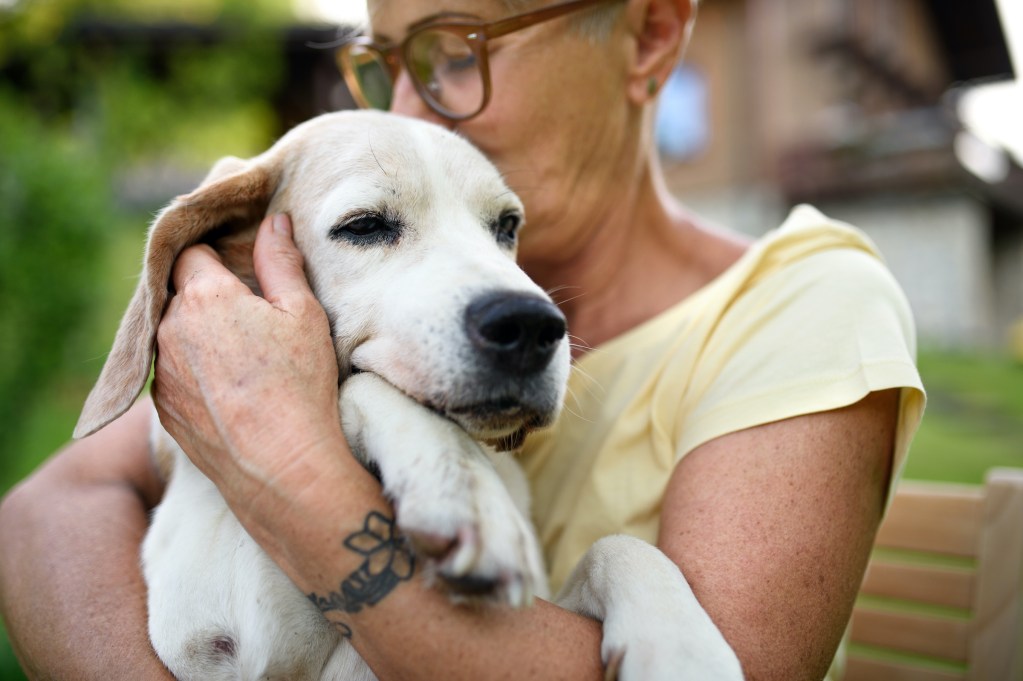
Even stress or fear can result in trembling for senior canines
Similar to tremors from the cold, stress shakes will affect your senior dog’s whole body rather than just their head or legs. You can expect these tremors to go away once your pup is relaxed again, though something like a ThunderShirt or exposure therapy can help ease your dog’s fears.
To know whether your dog is shaking from fear, look out for some of these other symptoms of stress:
- Excessive drooling or licking
- Restlessness
- Whining or barking
- Tucked tails
- Panting
- Changes in frequency of urination, defecation, etc.
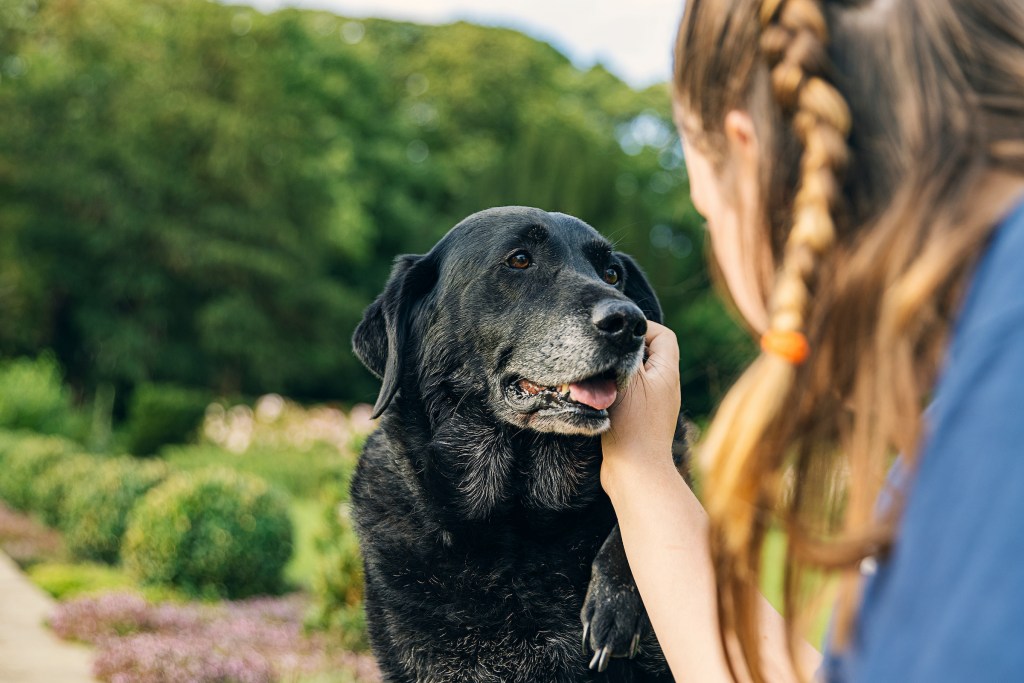
Old dog shaking can be caused by pain, too
Sometimes, a dog will express pain through shaking in the hind legs. If you notice your senior pup doing this, be aware that the pain may not be coming from the leg area even though that’s where they’re shaking.
This pain could be from arthritis or another chronic condition, but if it happens suddenly, you should let your vet know. It could be an emergency, especially if you spot any other severe behavior changes.
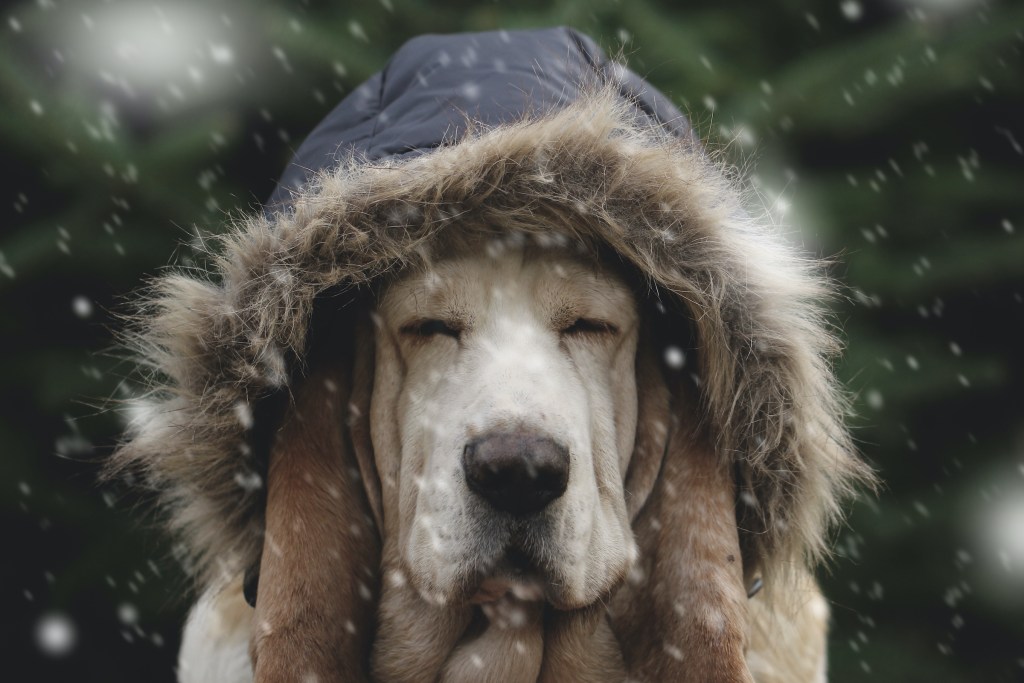
If your senior pup is trembling, they may just be cold
Sometimes, just like people, your dog will shake because they’re cold. These shivers will happen over the whole body, as opposed to only the head or hind legs. Thankfully, this isn’t a serious issue and has several easy fixes: cute dog sweaters, a self-warming mat, or a good snuggle from the person they love.
Remember, it’s totally normal for smaller dogs, like Chihuahuas, to shake from chilliness often. With less body mass, they also have less fat and muscle to keep them warm, though their coat of fur always helps!

Is shaking part of dog dementia?
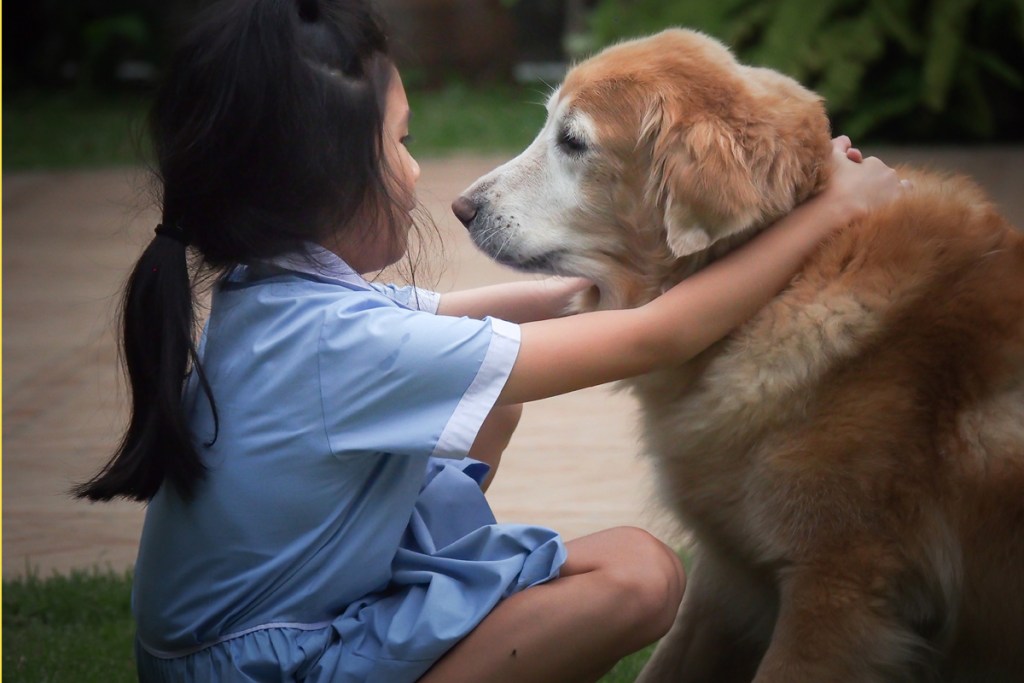
When to see the vet about dog shaking
Any time you see a big change in your dog’s behavior, you should schedule an appointment with your animal doctor. Shaking is no different, and even if you think it might be something ultimately benign, like shaker syndrome, you need to be sure. The exception here is if there’s an immediate and obvious cause. So if you’re elderly Chihuahua comes inside shivering on a very cold day or your poodle trembles during a particularly bad thunderstorm, then no vet visit required.
When you do attend the appointment, have some notes ready about when your dog shakes, where it happens in the body, and how often the episodes last. This info will help the experts determine the underlying cause and hopefully find the right treatment.
If your older dog starts shaking, don’t panic. Many causes of tremors are not urgent, but you should have your vet double-check if shaking is a new issue for your pup. It never hurts to make sure, especially when your fur baby’s health and comfort are at stake. Besides, treating the problem behind trembles isn’t terribly difficult; it’s all about a change in routine and lots of TLC for your sweet senior buddy.

